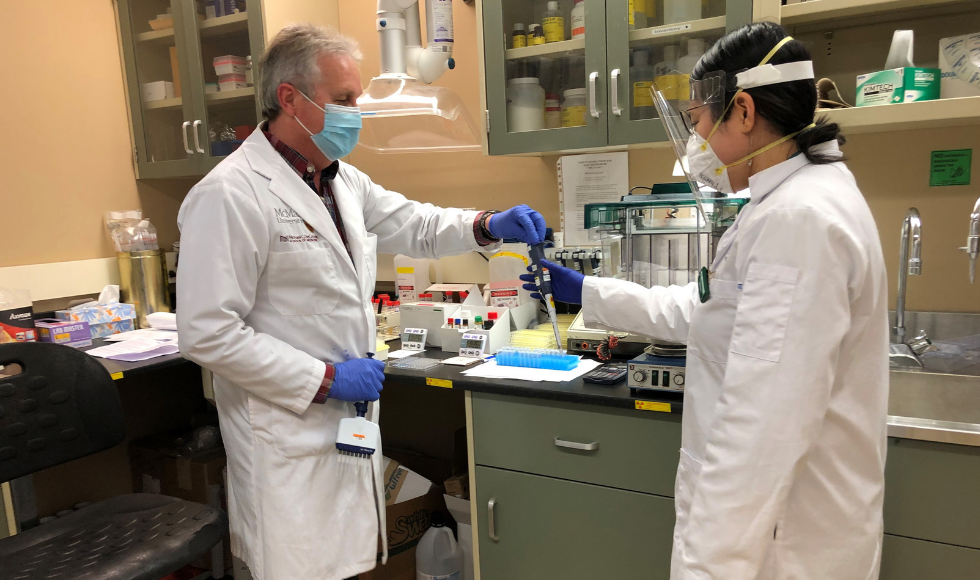McMaster lab diagnoses blood clots related to COVID-19 vaccine

Two technicians work in the McMaster Platelet Immunology Laboratory. The lab has pivoted to a new role as the only Canadian lab able to diagnose rare blood clot issues induced by COVID-19 vaccines.
April 13, 2021
The McMaster Platelet Immunology Laboratory has pivoted to a new role as the only Canadian lab able to diagnose rare blood clot issues induced by COVID-19 vaccines, including Canada’s first case in Quebec.
So far scientists in the lab have tested 10 blood samples from across Canada suspected to be blood clotting issues from use of the Astra Zeneca vaccine against COVID-19. The one positive case was in Quebec. The testing is done within 24 to 48 hours.
The lab, based at McMaster University, is building on its pioneering work of the past 40 years when its founders were the first to discover heparin-induced thrombocytopenia (HIT), a clotting condition that can occur in patients given heparin, ironically an anticoagulant medication.
Scientists at the lab are also leading international studies to identify how the antibodies cause the clots.
The antibodies form immune complexes that activate platelets, the cells that lead to blood clot formation. Some blood-thinner medications can block these immune complexes and potentially reduce clots.
“By discovering the mechanism, we can inform doctors on the use of blood-thinners, known as anticoagulants, that can stop the clotting in this rare vaccine side-effect and some COVID-19 patients,” said Ishac Nazy, associate professor of medicine at McMaster and director of the McMaster Platelet Immunology Laboratory.
The McMaster Platelet Immunology Laboratory is a provincially-funded diagnostic facility specializing in the investigation of bleeding and clotting immune-related platelet disorders, and part of the national surveillance of blood clotting issues caused by COVID-19 vaccines.


